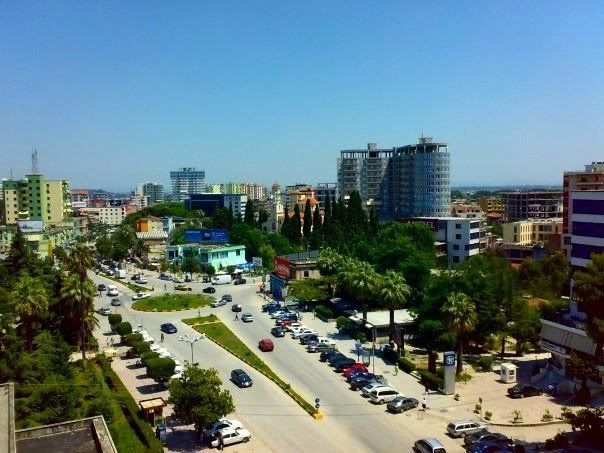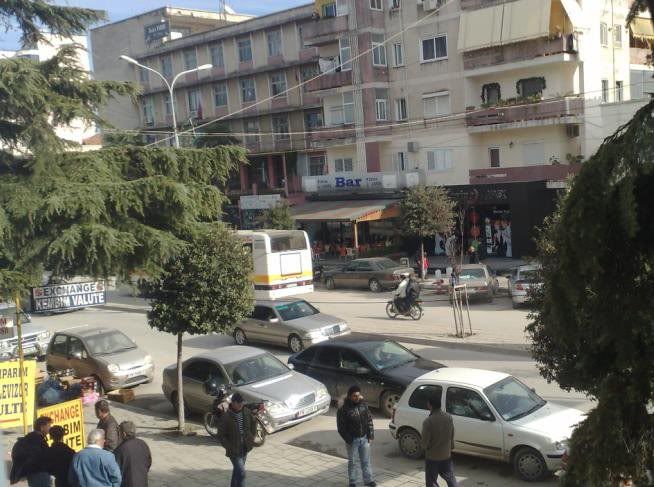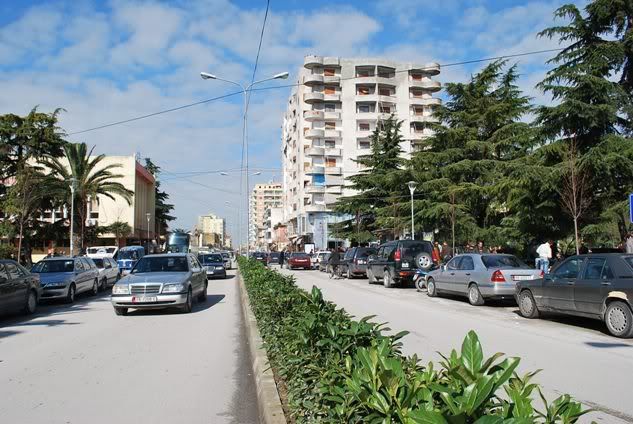-
Herzlich Willkommen im Balkanforum
Sind Sie neu hier? Dann werden Sie Mitglied in unserer Community.
Bitte hier registrieren
Du verwendest einen veralteten Browser. Es ist möglich, dass diese oder andere Websites nicht korrekt angezeigt werden.
Du solltest ein Upgrade durchführen oder einen alternativen Browser verwenden.
Du solltest ein Upgrade durchführen oder einen alternativen Browser verwenden.
Albania - Shqiperia Photos
- Ersteller Gentos
- Erstellt am
Weitere Optionen
Wer hat geantwortet?PravoslavacRS
Gesperrt
Albanien ist echt wunderschön, aber übertreibt es doch nicht...Frägt sich nur weshalb Albanien nicht das gelobte Land ist...Wahrscheinlich hat Moses sich damals verirrt...Glück für uns!^^
Gentos
Gesperrt
Albania: empty beaches, no tourists, £10 meals
Mary Ann Sieghart
Sunday Times: January 29 2011
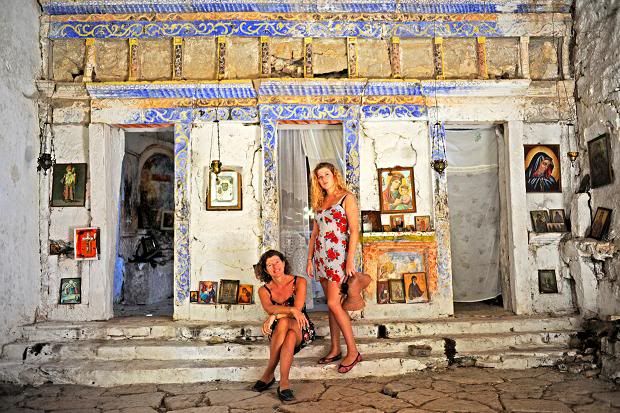
Mary Ann Sieghart and her daughter in Albania
Mary Ann Sieghart goes in search of Classical ruins and discovers a delightfully quirky country full of surprises
You know how, every year, everyone asks you where you’re going on holiday? When I reply “Albania”, they all respond with “Why?” Immediately. It’s not as if I’ve said Slough or Siberia. But Albania has failed to register on the tourist consciousness.
That’s a shame as it has its advantages for the few who are adventurous enough to go. In the whole of Tirana, the capital, we spot just a couple of foreigners. In one lovely mountain village, two women nearly come to blows over who will have the privilege of inviting us into her house. Over home-brewed Turkish coffee and fresh mint tea, the winner tells us excitedly, “We had a tourist here last year too!”
That encounter exemplifies everything that we love about Albania. The place is almost completely unspoilt, as are the people. Mariana, our hostess, is friendly and generous. Her tiny front room is full of endearing eccentricities, including a knitted — yes, knitted — orange tree in the corner and a red-and-white crocheted rooster with three chicks on the back of the sofa.
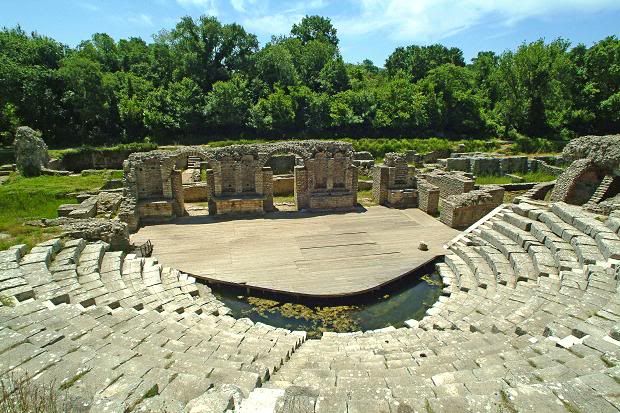
Amphitheatre in Sarandë, Albania Pavan Aldo/SIME/4Corners Images
“Only in Albania,” we agree. It becomes the catchphrase of our holiday as we come head-to-head with an elderly man cycling slowly towards us the wrong way down the fast lane of a dual carriageway, or as we drive into a small town and notice one chicken tethered to each of the regularly spaced trees planted on both sides of the main street. What are they doing there? Who knows?
What are we doing here? Well, Rupert Smith, a friend of ours, has recently spent two years running the archaeological foundation at Butrint, Albania’s best-known Classical site. Now he has set himself up as a tour guide to countries with Graeco-Roman remains. We want him to imbue our daughter and the daughter of a friend, both university-aged, with some enthusiasm for Classical rubble.
Butrint, built by the Greeks as a sanctuary to Asclepius, the god of healing, sits opposite Corfu surrounded by the Ionian Sea, a river and a lagoon. Because the occasional cruise ship berths near by and tourists to Corfu can cross over on a day trip, this World Heritage Site is the only part of Albania where you will come across more than the odd foreigner. Even so, we have the Greek theatre to ourselves. Rupert declaims from the stage while we sit in the stalls, soaking up the history.
Caesar came to Butrint and Augustus, his adopted son, developed it as a colonial city after defeating Antony and Cleopatra. As well as the theatre, there are bathhouses, a palace, a museum and a Byzantine baptistry with a magnificent mosaic, which — sadly — is covered up. The ancient city’s setting, on a little peninsula surrounded by water, with marshes and mountains in the distance, is particularly lovely.
But we prefer Apollonia, a hilltop site, where Augustus was at university when he learnt of Caesar’s assassination. It has a beautifully preserved frontage on a town hall built on an ancient agora with long views over the plain. And in the courtyard of a building that ought to be turned into a museum — but no one has the money — we come across a row of headless Greek statues that you can stand behind while your friends take silly photos of you.
What we most love, though, is Rupert leading us up a little path through the trees above the agora, scrambling through some undergrowth and emerging to discover a tiny country restaurant where, under an olive tree, we eat delicious char-grilled lamb while we enjoy the view and the distant tinkling of sheep and goat bells.
This is our second-best meal. The first is in the most unlikely restaurant, surrounded by empty buildings, on a dual carriageway outside Tirana. But the clue lies in the rows of new 4x4s in the car park, all with tinted windows, a sure sign of “mafiosi” custom. We eat huge bowls of steaming mussels, pasta and fish, drink wine and coffee and are met with a bill of €10 (£8.62) a head.
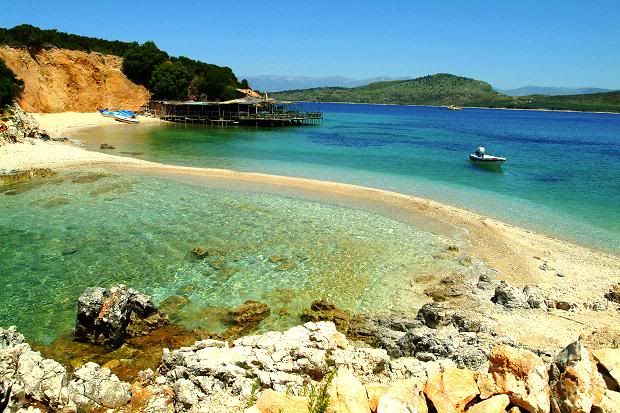
Mediterranean sea, Ksamili, Albania Pavan Aldo/SIME/4Corners Images
Albania is cheap as chips. Most of our hotels cost about €20 each per night and they are spotless, friendly and serviceable. The cheapest, admittedly pretty basic but still with ensuite showers, is only €6. We never feel pestered or ripped off. In fact, we sometimes find shopkeepers or hotel owners rounding down a price if we don’t have the right money.
The locals adore Rupert and he is greeted with loud shrieks and bear hugs wherever we go. His Albanian is pretty good too; quite something, given that the language resembles none other on Earth. (The Albanian for white wine sounds like “very bad”, which is sometimes uncannily descriptive.) We find Albanians to be honest, generous and remarkably tolerant. Christians and Muslims are buried next to each other and they are justifiably proud that they are the only country in continental Europe to have had a higher Jewish population at the end of the Second World War than at the beginning. After that, they endured nearly half a century of North Korean-style dictatorship under Enver Hoxha, the Communist leader. (The country is still speckled with thousands of concrete one-man bunkers, into which the citizens were supposed to climb when the enemy invaded.) Apart from bunker blight, the countryside varies between ordinarily pretty and downright dramatic. Rupert takes us to a wonderful river gorge near Benja, with not-quite-hot springs at its entrance, which we walk and scramble along for hours, sometimes thigh-deep in water, marvelling at rock formations that could easily have featured in The Lord of the Rings. Like almost everywhere else, we have it to ourselves.
Albania is hardly about to become the new Croatia. Although it has some spectacular, unspoilt Mediterranean coastline, large parts have been blighted by anarchic development and the beaches are nothing special. But, as well as its Classical ruins, there are some beautiful Ottoman towns and castles. And, best of all, it has so much character.
Where else would you stumble upon a bunch of friends enjoying the ancient tradition of polyphonic singing in the town bar? Where else would the local energy drink be Pit Bull? And where else would the national hero — now immortalised in a chain of petrol stations — be called Kastrati? Only in Albania.
http://www.thetimes.co.uk/tto/travel/destinations/croatia/article2890578.ece
Mary Ann Sieghart
Sunday Times: January 29 2011

Mary Ann Sieghart and her daughter in Albania
Mary Ann Sieghart goes in search of Classical ruins and discovers a delightfully quirky country full of surprises
You know how, every year, everyone asks you where you’re going on holiday? When I reply “Albania”, they all respond with “Why?” Immediately. It’s not as if I’ve said Slough or Siberia. But Albania has failed to register on the tourist consciousness.
That’s a shame as it has its advantages for the few who are adventurous enough to go. In the whole of Tirana, the capital, we spot just a couple of foreigners. In one lovely mountain village, two women nearly come to blows over who will have the privilege of inviting us into her house. Over home-brewed Turkish coffee and fresh mint tea, the winner tells us excitedly, “We had a tourist here last year too!”
That encounter exemplifies everything that we love about Albania. The place is almost completely unspoilt, as are the people. Mariana, our hostess, is friendly and generous. Her tiny front room is full of endearing eccentricities, including a knitted — yes, knitted — orange tree in the corner and a red-and-white crocheted rooster with three chicks on the back of the sofa.

Amphitheatre in Sarandë, Albania Pavan Aldo/SIME/4Corners Images
“Only in Albania,” we agree. It becomes the catchphrase of our holiday as we come head-to-head with an elderly man cycling slowly towards us the wrong way down the fast lane of a dual carriageway, or as we drive into a small town and notice one chicken tethered to each of the regularly spaced trees planted on both sides of the main street. What are they doing there? Who knows?
What are we doing here? Well, Rupert Smith, a friend of ours, has recently spent two years running the archaeological foundation at Butrint, Albania’s best-known Classical site. Now he has set himself up as a tour guide to countries with Graeco-Roman remains. We want him to imbue our daughter and the daughter of a friend, both university-aged, with some enthusiasm for Classical rubble.
Butrint, built by the Greeks as a sanctuary to Asclepius, the god of healing, sits opposite Corfu surrounded by the Ionian Sea, a river and a lagoon. Because the occasional cruise ship berths near by and tourists to Corfu can cross over on a day trip, this World Heritage Site is the only part of Albania where you will come across more than the odd foreigner. Even so, we have the Greek theatre to ourselves. Rupert declaims from the stage while we sit in the stalls, soaking up the history.
Caesar came to Butrint and Augustus, his adopted son, developed it as a colonial city after defeating Antony and Cleopatra. As well as the theatre, there are bathhouses, a palace, a museum and a Byzantine baptistry with a magnificent mosaic, which — sadly — is covered up. The ancient city’s setting, on a little peninsula surrounded by water, with marshes and mountains in the distance, is particularly lovely.
But we prefer Apollonia, a hilltop site, where Augustus was at university when he learnt of Caesar’s assassination. It has a beautifully preserved frontage on a town hall built on an ancient agora with long views over the plain. And in the courtyard of a building that ought to be turned into a museum — but no one has the money — we come across a row of headless Greek statues that you can stand behind while your friends take silly photos of you.
What we most love, though, is Rupert leading us up a little path through the trees above the agora, scrambling through some undergrowth and emerging to discover a tiny country restaurant where, under an olive tree, we eat delicious char-grilled lamb while we enjoy the view and the distant tinkling of sheep and goat bells.
This is our second-best meal. The first is in the most unlikely restaurant, surrounded by empty buildings, on a dual carriageway outside Tirana. But the clue lies in the rows of new 4x4s in the car park, all with tinted windows, a sure sign of “mafiosi” custom. We eat huge bowls of steaming mussels, pasta and fish, drink wine and coffee and are met with a bill of €10 (£8.62) a head.

Mediterranean sea, Ksamili, Albania Pavan Aldo/SIME/4Corners Images
Albania is cheap as chips. Most of our hotels cost about €20 each per night and they are spotless, friendly and serviceable. The cheapest, admittedly pretty basic but still with ensuite showers, is only €6. We never feel pestered or ripped off. In fact, we sometimes find shopkeepers or hotel owners rounding down a price if we don’t have the right money.
The locals adore Rupert and he is greeted with loud shrieks and bear hugs wherever we go. His Albanian is pretty good too; quite something, given that the language resembles none other on Earth. (The Albanian for white wine sounds like “very bad”, which is sometimes uncannily descriptive.) We find Albanians to be honest, generous and remarkably tolerant. Christians and Muslims are buried next to each other and they are justifiably proud that they are the only country in continental Europe to have had a higher Jewish population at the end of the Second World War than at the beginning. After that, they endured nearly half a century of North Korean-style dictatorship under Enver Hoxha, the Communist leader. (The country is still speckled with thousands of concrete one-man bunkers, into which the citizens were supposed to climb when the enemy invaded.) Apart from bunker blight, the countryside varies between ordinarily pretty and downright dramatic. Rupert takes us to a wonderful river gorge near Benja, with not-quite-hot springs at its entrance, which we walk and scramble along for hours, sometimes thigh-deep in water, marvelling at rock formations that could easily have featured in The Lord of the Rings. Like almost everywhere else, we have it to ourselves.
Albania is hardly about to become the new Croatia. Although it has some spectacular, unspoilt Mediterranean coastline, large parts have been blighted by anarchic development and the beaches are nothing special. But, as well as its Classical ruins, there are some beautiful Ottoman towns and castles. And, best of all, it has so much character.
Where else would you stumble upon a bunch of friends enjoying the ancient tradition of polyphonic singing in the town bar? Where else would the local energy drink be Pit Bull? And where else would the national hero — now immortalised in a chain of petrol stations — be called Kastrati? Only in Albania.
http://www.thetimes.co.uk/tto/travel/destinations/croatia/article2890578.ece
El Malesor
Spitzen-Poster
Flamuri mbi Tuz


App installieren
So wird die App in iOS installiert
Folge dem Video um zu sehen, wie unsere Website als Web-App auf dem Startbildschirm installiert werden kann.
Anmerkung: Diese Funktion ist in einigen Browsern möglicherweise nicht verfügbar.



